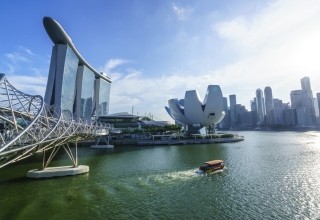
According to a recent survey, employees in Asia are among the most likely to spend a substantial amount of time acting busy at work. The findings provide useful insights into the dynamics of work culture and perceptions of productivity across the area.
A famous research organization conducted the survey, which looked at employee behaviors and perceptions in various areas. It was discovered that a significant part of Asian employees frequently emphasize the image of busyness, even though their actual workload does not support such conduct.
The concept of “presenteeism,” in which employees feel obligated to look active regardless of their real activities or productivity, has long been a source of discussion in the workplace. According to the report, this trend is most pronounced in Asia, where cultural influences, societal expectations, and the desire to make a good impression all contribute to this behavior.
Several factors, according to experts, may contribute to the predominance of perceived activity in Asia’s work culture. High levels of competition, strong work ethics, and an emphasis on professionalism may all contribute to a workplace in which employees feel under pressure to demonstrate dedication and commitment by seeming active at all times.
While the findings of the study highlight an interesting trend, they also raise concerns about the possible ramifications for both individual well-being and overall workplace productivity. Employees may experience burnout, stress, and a lack of work-life balance as a result of the pressure to look active at all times.
Employers and organizations are encouraged to cultivate a workplace culture that values results over appearances. Open communication, clear goals, and a focus on output-driven performance can reduce the pressure to look busy and foster a healthier work atmosphere.
The study also serves as a reminder that addressing these trends necessitates a diversified approach. Understanding the underlying cultural dynamics, building a supportive work environment, and boosting employee well-being are all part of it.
Keep Reading
The study’s findings provide significant insights into the complex interplay between work culture, societal influences, and individual actions as organizations continue to adjust to altering work standards and employee expectations. Organizations may create an environment where productivity and well-being are mutually reinforcing by recognizing and addressing the phenomena of perceived busyness.
Ultimately, the study indicating the frequency of perceived busyness among Asian employees highlights the complex link between work culture, societal expectations, and individual behaviors. The findings provide insight on the specific factors affecting regional workplace trends and highlight the need of cultivating a balanced and supportive work environment that promotes both productivity and well-being.
As businesses grow, the report serves as a call to action for employers to foster a working culture that prioritizes genuine contributions over outward appearances.



























